After reading this powerful parenting book, I asked the author some follow up questions which she kindly answered in this post.
Q&A With The Author of Hunt, Gather, Parent
As you may know by now (especially if you’ve read my initial post on Hunt, Gather, Parent), I am a big fan of Michaeleen Doucleff’s book. I’m always looking for ways to raise better people and simplify the parental experience. I found this all in Doucleff’s book. I keep it at my desk and find myself turning to it often.
Many of you had questions about her philosophy (as did I), and she kindly answered your questions that you submitted through Instagram. So, let’s get those questions answered.
Hi Michaeleen! I recently finished your book and got so much value from it as a parent of two children ages 2 and 4. Thank you so much for your work. One part that I found tricky to grapple with was your suggestion to remove (most) toys from the home. I am an early childhood educator, and believe that “play is the work of childhood.” I’m pretty thoughtful about what comes into our home, so wondered what your perspective is on play?
Thank you so much for this thoughtful question. I totally agree that play is the “work” of children. Historically, play is the way children have learned the work of their parents– e.g. how to forage for tubers, how to use a bow and arrow, how to hunt, how to sew, how to cook. As the psychologist Suzanne Gaskins explained: children turn to play (and are pointed to play by their parents) when they don’t have access to the real world, when they’re not ready to help their parents directly but are still practicing.
That all said, children do not need toys (or very many) to play. In fact, they didn’t have them for thousands of years. Having many toys around the home is a very recent phenomenon. As I explain in the book, parents buying toys for children really started toward the end of the Industrial Revolution when companies realized they could make a lot of money selling toys (and having a room devoted only to toys is really only decades old). Before then, children made their own toys. They made them out of items around the home or outside. Or they played with adult items that weren’t needed anymore or were downsized for a child. Here the “toy” has a clear purpose: to teach an adult skill.
For example, in Tanzania, dads made miniature bow and arrows for the toddlers to carry around and practice. Or up in the Arctic, parents gave children old, dull harpoon ends, as well as wooden boxes, to practice “whale” harpooning. Children also practiced hunting together by catching ground moles (again, you can see here how play has a clear purpose: to teach an adult skill). When we were in the Yucatan, a Maya mom gave Rosy a little piece of dough to practice tortilla making. In Western society, parents would give kids little pieces of discarded clothes and sewing needles so they could practice mending and making cloth.
Otherwise, toys from a parent just aren’t necessary. If you have them, I don’t think it’s going to hurt the child. But they do have a downside or cost for many families.
In our family, they cause conflict because my husband and I end up cleaning them up. And I don’t like the clutter. They took up coveted space in our tiny San Franciscan home. I also like our home looking mature and not like a playhouse. So we limited the toys to the ones that Rosy regularly cleaned up herself and took care of. So really it was up to her what toys she has. And it ended up being very little.
Toys also take up time. Personally, I would rather have Rosy play outside (where “toys” are everywhere!). Or focus her indoor time on learning the skills of an adult (reading, writing, cooking) or a hobby for relaxation and teaching focus (knitting, painting, coloring, taking care of animals).
I am interested, how this would be different for only children than for those with siblings. I imagine that there may still be some need for only children to have some child centric activities for socialization with their peers and play skills. I have a five-year-old only child, and he asks for a friend or another kid to play with often if it has been sometime since the last play date or kid outing.
I have thought about this question so much because Rosy is an only child, as well. At first, I felt the same as you. But over time, I’ve realized that only children don’t need more child-centered activities. What they need is more socialization – just like your son is asking for! He is very smart and knows what he needs. And more socialization doesn’t need to involve child-centric activities.
When you travel around the world, you see that kids spend an enormous amount of their free time surrounded by other kids. After about age 3, they spend almost all their time with other kids, of all ages, playing. The rest of their time is spent helping adults. And so with Rosy, I’ve really focused on giving her that – as many opportunities as possible to be around other kids. We open our home to the neighbor kids, invite kids over, take other kids to the park and beach. We make having kids over and being with other kids a top priority.
Unless you sit around watching and playing with the kids yourself, having kids over isn’t child-centered. In fact, it’s the opposite if you let children have autonomy (with minimal interference). Then you can have autonomy as well!
Another great way to bring more socialization into your child’s life is to build an “auntie” network where you work with one or two other families to raise your kids. This brings “cousins” into your family – that is, other kids who become like relatives. But it also brings in alloparents to support the child and to support you! To learn about how to make an auntie network (which I think is really essentially for only children and their parents), read the practical tips sections for the chapter on alloparenting in Hunt, Gather, Parent (Chapter 15)
Hi! I’m reading this book too based on your rec. question for the author: – Do we think this works with neurodivergent kids? – Our OT suggested specific praise/narration consistently to build self worth in the child. I worry your books strategy will erode self worth /confidence by no verbal affirmation and the slightly negative insinuation he’s a “baby” by not helping – Ideas for when you truly HAVE to do something? Thanks 🙂
This is a wonderful question. Broadly speaking, absolutely, the main techniques in the Hunt, Gather, Parent — that is the TEAM method (Togetherness, Encouragement, Autonomy, and Minimal interference)— works with neurodivergent kids. Parents all over the world raise neurodivergent kids, and they use this same approach. In fact, I’ve had psychologists tell me that these parenting elements are even more important for many neurodivergent kids. There’s a member of our family, who’s on the autism spectrum, and I’ve found that using the TEAM approach with them has greatly improved our relationship and reduced conflict.
That said, not every specific tool or tip is going to work with every kid. When I travel, and ask parents about whether a method works, they often say, “Well, it depends on the child.” Parents often know exactly how each of their children responds to different motivational tools or parenting strategies. And of course, what a child responds to can shift over time as they grow. So it’s great to observe and then be flexible.
The goal of Hunt, Gather, Parent is to greatly expand your tool box of parenting strategies and tips. So you can experiment a bit and see what resonates with your child. (I also hope the book gives you power and courage to try approaches that parents use all over the world but have been forgotten or even shunned in our society. And to question some of the methods that are presented to us as absolutely required to raise a healthy kid.)
On the topic of praise. Our society, including many clinicians, have decided that children absolutely require praise to have good self-worth. But this idea is outdated, and the scientific evidence simply doesn’t support it. In fact, many cross-cultural psychologists would argue that praise is not the best tool for building self-worth. Inclusion, connection, and contributions are more powerful approaches. Chapters 5 and 6 is a great place to learn more about this.
Research also shows that confidence doesn’t come from praise. What is, arguably, most important for confidence is autonomy— that is, the child feeling like they have a sense of control over their lives. For confidence, I would focus on learning to give the child more autonomy, such as building environments in and around the home where the child can move freely without your supervision (or with only minimal interference), teaching the child skills to have that autonomy (teaching what’s safe and not safe and then practicing that), and going to outdoor places where they can do this. Also, I would learn how to interfere minimally with a child’s activities.
That all said, you are the true expert of your child. As one mom in the Arctic told me: “If something will improve your relationship with your child, do it! If it will hurt your relationship, try another strategy.”
I really enjoyed the book. It was extremely relatable with attainable strategies to adopt. I find that I lean in to the guidance immediately after reading, but tend to “lapse” as time goes on. Since writing the book, what guidance/strategies have stuck most for you as a parent?
Thank you so much. I have the same problem! In fact, while writing the book, I would often go back and re-read the Inuit section to help my anger “relapses.” So I would say, these lapses are totally normal. Because you are changing a habit and a way of thinking about children that you learned from your own parents and society. Both of these are not easy to change.
So I would say go easy on yourself and don’t give up. The great part about parenting is that tomorrow you will have another chance to try again. The opportunities are endless to change and refine.
Also, maybe reread the passages of the book that speak to the ideas you’re trying to reframe. And try talking about your new strategies with friends or your partner. I find that telling others about what I’m trying to do really helps me execute my plan.. Oftentimes I’ll even tell Rosy about new parenting strategies and ask her for help. Maybe I’ll say something like “I’m trying not to yell when I’m angry. Can you tell me when I’m forgetting or relapsing into my own ways.” Boy, is she good at reminding me! And then when I mess up, I just apologize. “Oh, Rosy, you’re right. I’m sorry I’m getting angry. There’s a better way to handle this. And I’m sorry.” (and she gets a nice dose of modeling!)
Finally, remember that small changes can have huge effects on children. The fact that you “lapse” is so much less important than the fact that you’re giving your child opportunities to contribute and help their family. Or you’re giving them the opportunity to see a parent calm and not yell in a stressful situation. Kids don’t need perfection. They just need parents who are real and show real emotions. And are trying to be respectful and cooperative.
I’m intrigued by this book, but haven’t read it yet (I’m on a wait list for it from the library lol). I have an almost 6yo and 3yo. The 3yo has full rage meltdowns that can last for quite awhile and I’m wondering what other tactics might work? We’ve tried the “scripty” responses and validating feelings and all that, but I feel awful it takes her so long to get back to homeostasis. You can see when the release happens. It’s like a switch flips. Need more tactics to get the switch to flip sooner. Thank you!
I am not a big fan of the “scripty” parenting approach. I think kids know right away that’ it’s fake and not genuine. And itt can also come across quite condescending. They can smell condescending and disingenuity from a mile away. And also, all that talking is so stimulating for little children who are often way too stimulated anyway.
When a child is melting down, what they need is calm, calm, calm, calm energy. They need you to be as calm and quiet as possible, and then just to be near them. As I say in the book, “think Mr. Roger’s stoned.” I’m talking about as low energy as possible. (Saying all that “scripty” stuff is not low energy because words are stimulating for little kids.)
So the next time, there’s a meltdown, just go close to the child, slowly… and stand there quietly with the calmest energy possible. Maybe think about how you feel after having a massage. Maybe touch the child gently on the arm. But just be there with a calm energy. Quiet. Still. Quiet. Still.
I guarantee you, the child will calm down. Why? Children’s energy and emotions simply mirror their parents’ energy and emotion. So if you talk and have a strong, high energy, it will take much longer for the child to calm down. But if you are quiet, calm and still, the child will bring their energy down to match yours.
Here’s the amazing part. If you simply stand there, with the calmest energy in the world, the child will learn very quickly how to calm themselves. Because they are actually doing it on their own. You’re simply modeling it for them. So quickly, the tantrums will grow shorter and shorter in time and occur less frequently.
My daughter is 2 years 4 months and in the book it was hard to understand what tactics work with what age groups so can you talk more about that 2-3 age range? 2) screen time is never mentioned on the book, thoughts on that? do we limit it? do we “let the kid do what they want”? how do I handle my daughter constantly want to use my phone for youtube
You are totally right about the book not specifying ages often. That was intentional on my part. Because the tips really do work on kids of all ages, even adults. (Sometimes you need to tweak them a bit for older kids and adults, but it doesn’t take much). In addition, parents around the world tend not to focus so much on a child’s age but rather their skill level or own personal needs. Often, I would ask a parent about “what age can a child do” something, and they almost always said, “It depends on the child.” So parents learn what age is appropriate for a child by watching them and trying out various approaches.
For example, if a 13 year old has never helped with dinner then they will likely need the same strategies as a 3 year old who is just starting off, as well. So maybe think in terms of where they child is in the learning the process, instead of their age.
That all said, age 2, is a fantastic age to get kids involved with all household chores– or really anything you want them to help out with easily, as they grow older. They love helping at this age, and it’s primetime to harness that enthusiasm. It’s also a great age to try all the ideas for more autonomy because toddlers really, really need autonomy (I really recommend the 3 commands per hour for this age to reduce stress and conflict). Stories are great at this age, as well as the dramas, because they really don’t understand logic.
And then the question about screens. Gosh darn screens! I actually intentionally left them out, too, because I felt like the topic needs a whole book. And I’m actually working on that book now. iPads, social media, nonstop streaming, and intense video games are so new to our lives, it’s tough to find an ancient, deeply rooted way of handling them. So I have taken a totally different tact on this topic. Stay tuned! A book will come out a little over a year.
But I did find a few tips around the world about screens. The one that I often think about is: If an object triggers conflict between the parent and the child, then the object is typically kept from the child until they are mature enough to use it without conflict.
Smartphones are deliberately designed to make adults use them constantly (and they work even better on children), so your daughter is always going to want it. If that causes conflict (and not what you want), I would suggest keeping it out of her sight and using it only when she’s not around.
I struggle with the parktime play. I work a lot and I feel like when I am with my kids on the weekends, I should be engaged with them playing at the park. In your book, you say to sit down, read a book and let them know that Mommy is nearby if needed, but I find myself jumping into playing with them, because I feel guilt about not playing with them. What advice do you have about that?
Oh, I do understand how you feel! I played at the park for the first 2.5 years of Rosy’s life. And I did it out of pure guilt. But the truth was, I didn’t enjoy it. And I often wanted to stop playing with her before she wanted me to stop. This generated great conflict. She ended up crying because I stopped too early or I ended up getting angry because playing tired me out.
In the vast majority of cultures, parents don’t play with children. Playing with children seems a bit ridiculous because adults are adults. They don’t join the child world.
But parents do engage with children, quite a lot. And they do that by including children in their lives. By bringing children into the adult world. By including – and welcoming them into their work, chores, hobbies, leisure and social activities. This builds connections with the child, teaches cooperativity, enhances motivation and also teaches the child skills – how to behave in the adult world and skills they need as they grow up (like how to cook, clean but als
Once I learned this, I stopped feeling guilty about not playing with Rosy. In fact, I felt proud that I’m giving Rosy a chance to develop her skills with other children or have a time for her to be just with herself.
I also started bringing her into my world – including her in my work, hobbies, chores, and leisure. Doing this brought us so much closer together than me playing with her. For one, It felt like a more genuine interaction because I wasn’t doing it out of guilt but rather because I really want to include her. Second, I could see how much joy and confidence she gained by being included in my life. This is also how she grows and learns. When I include her in my life, she isn’t just my kid, we’re working together as a team. And she’s contributing in real, meaningful ways to our family.
I loved reading about how some of these mothers from ancient cultures accepted that “kids will be kids” and some of their behaviors are expected. For me, it’s hard to know when to let them run with that behavior and when I should draw a line. Can you perhaps elaborate on what you saw and how the mothers managed that?
This is a wonderful question! And one I’ve thought about a lot. In general, parents that I’ve encountered in hunter-gatherer communities, ignore the vast majority of misbehavior. They literally just ignore it. (Ethnographers and anthropologists have also documented this trend). They rarely ever punish or scold. If a child is literally hurting themselves or others, the parents will interfere and stop it.
But there are few times when parents do point out misbehaviors. That’s when a child isn’t being helpful, generous or kind. Or another way to look at it – when a child isn’t respecting their family, community, or environment. Then parents will let the children know that it’s not acceptable. They will ask questions (“Am I a trash can?” “Am I your mule?” “How do you think that makes your brother feel when you don’t share?”) give consequence puzzles (“You’re going to hurt somebody with that stick”), or simply stating the problem (“That’s unhelpful.” “That’s disrespectful.”). Then later on, they will help teach the child the proper behavior through a story, drama, or conversation.
They don’t do any of this with a loud, boisterous voice or with a lot of emotion. Their tone is more factual and to the point. The goal is not to scold or punish or generate conflict but rather conveying information.
Also, younger children are given way more leeway than older ones because older ones should have much more understanding.
For me, personally, I feel like if Rosy isn’t pulling her weight around the house, then I tell her. Or I ask her: “Are you contributing to the family’s work?” If she’s rude or unkind or disrespectful, I tell her. I ask her, “how do you think that comment makes me feel? Is that kind?” “How would you feel if I said that?” My goal is to teach her kindness, generosity and helpfulness for her family, and if she isn’t, I try to gently point it out and guide her back to the way that I know she wants to be.
My biggest parenting struggle is around my kids being competitive with one another. Whether one got a bigger piece of banana or one got to go to the store with mommy but the other didn’t, there are a lot of meltdowns among them. My son, who is older than my daughter, is constantly obsessed with winning and ‘beating’ his sister in games and life (haha!) He provokes her and then she melts down (she’s younger and still throws tantrums.) How can I help bring more peace between them and how can I foster more of that protective older sibling principle that you talk about?
I would try a few approaches. First off, I would stop praise completely. Praise generates competition between siblings (It also generates competition between reporters at NPR. I see it firsthand. So we are all a bit susceptible to this reaction to praise).
Second, I would start to make everything “fairer” between the two siblings so there is less concern or fear about “missing out.” That is, everyone works together as a team. Everyone goes on trips with mommy. Everyone cleans up after dinner together, does the laundry together, makes each other’s bed. Everyone gets the same piece of banana bread. Everyone is included and gets the same. I know that goes against our culture’s idea that “life isn’t fair” and kids need to learn this. But why shouldn’t family members try to be fair with each other? Why shouldn’t each kid be included in a trip? You’re a team, right? Kids will have more than enough opportunities to learn this outside the family. But inside the family, everyone is included in everything. Then it feels safer to children. They can relax and don’t need to compete.
You can even say to the kids: “We’re starting something new. We’re all going to work as a team. We’re all going on the same trips, have the same food, do the same chores. Now I know it can’t be PERFECTLY fair all the time… everyone can’t have the exact same size of banana bread or do exactly the same amount of work, but we’re going to do our best because now we’re a team.” The goal here is to start removing the fear of getting the short end of the stick. So the message no longer is… you have to deal with the unfairness.. but rather the message is… we are trying to be as fair as possible.
Next I would bring the oldest child onto the youngest’s team by giving him responsibility and a bit of power. Sounds crazy but ’m serious! This is what I saw over and over again. You get the older child on the younger child’s side by enlisting their help. Take a moment, when you’re alone together, and say to the older child, “I see how much you’ve grown and matured recently, and I’m wondering if you think you’re ready to help look after your little sister. I’m not sure you’re ready [this makes a challenge!] but she could surely use your help. Do you think you’re old enough to handle this? I’m not sure [again, challenging him]. Maybe?”
Then give the two children a task to do, together, without you, that’s a bit challenging. For example, running into the store and buying milk, or going down the street and asking for a cup of flour. A task that the older child would LOVE to do (and can), but the younger child really can’t do without their older brothers help. Then say to the older child: “OK. you’re going to have to take care of your little sister and make sure she’s ok. You’re the older, more capable one. Can you take care of her? Can you make sure she crosses the street safely?”
Overtime, you give the older child more and more responsibilities with the younger one. He watches her while you’re working. Or have to run into the store yourself. He helps her do the dishes. Take care of the animals. You name it! You’re training him to be her alloparent. He has purpose, and is contributing by helping her and you. He is her caretaker but also your helper. Over time, this responsibility will ease the competition between the two because you don’t need to compete with a person you’re caring for. They will create a team.
I hope you found this Q&A insightful and helpful and encourages you to read Hunt, Gather, Parent – it truly helped me in my motherhood journey! I’d love to continue the conversation, so feel free to leave a comment on this post or DM me on Instagram.





















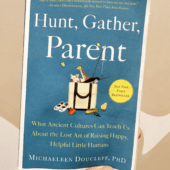
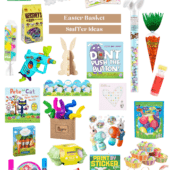
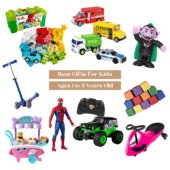







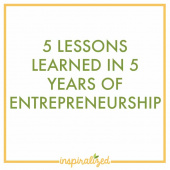
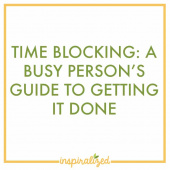
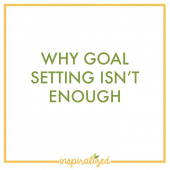










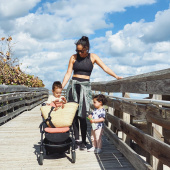

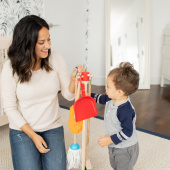
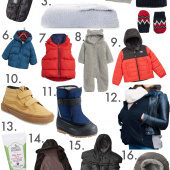
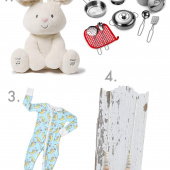
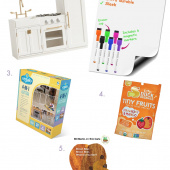


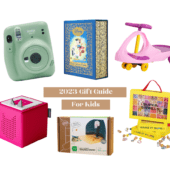

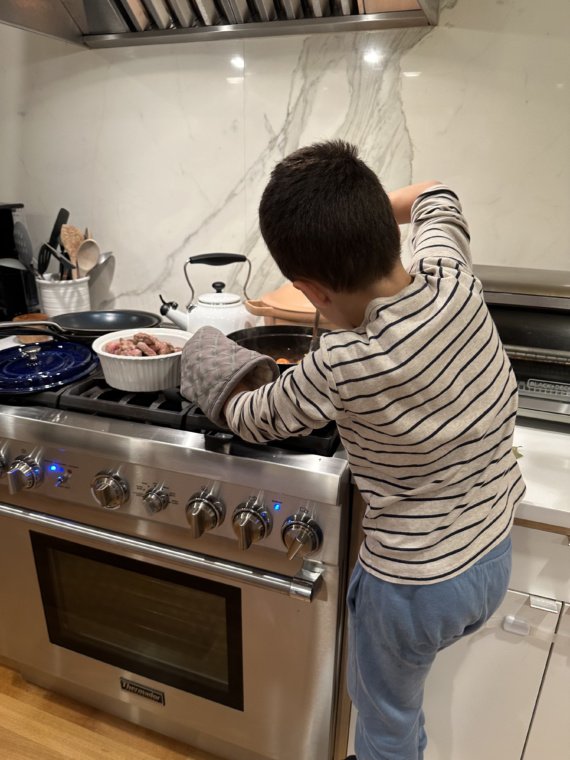
comments